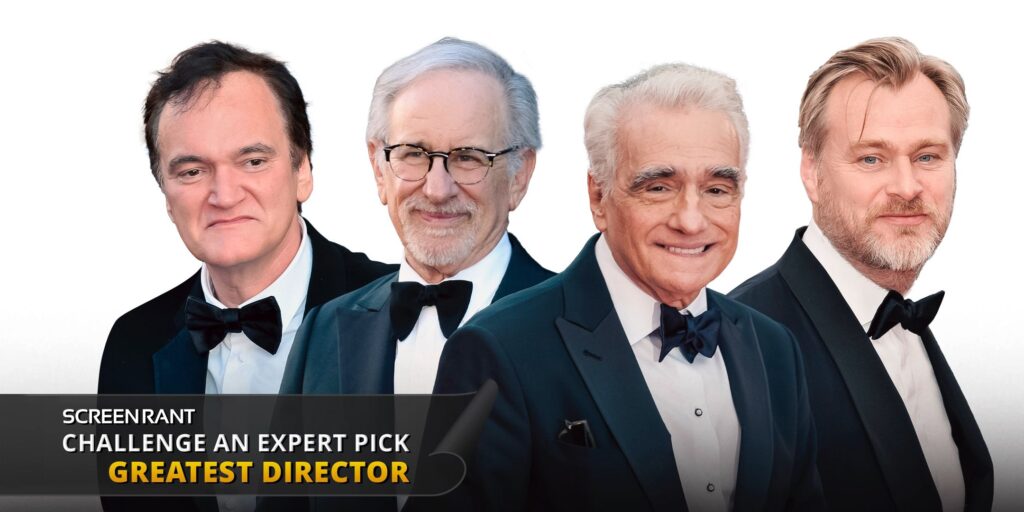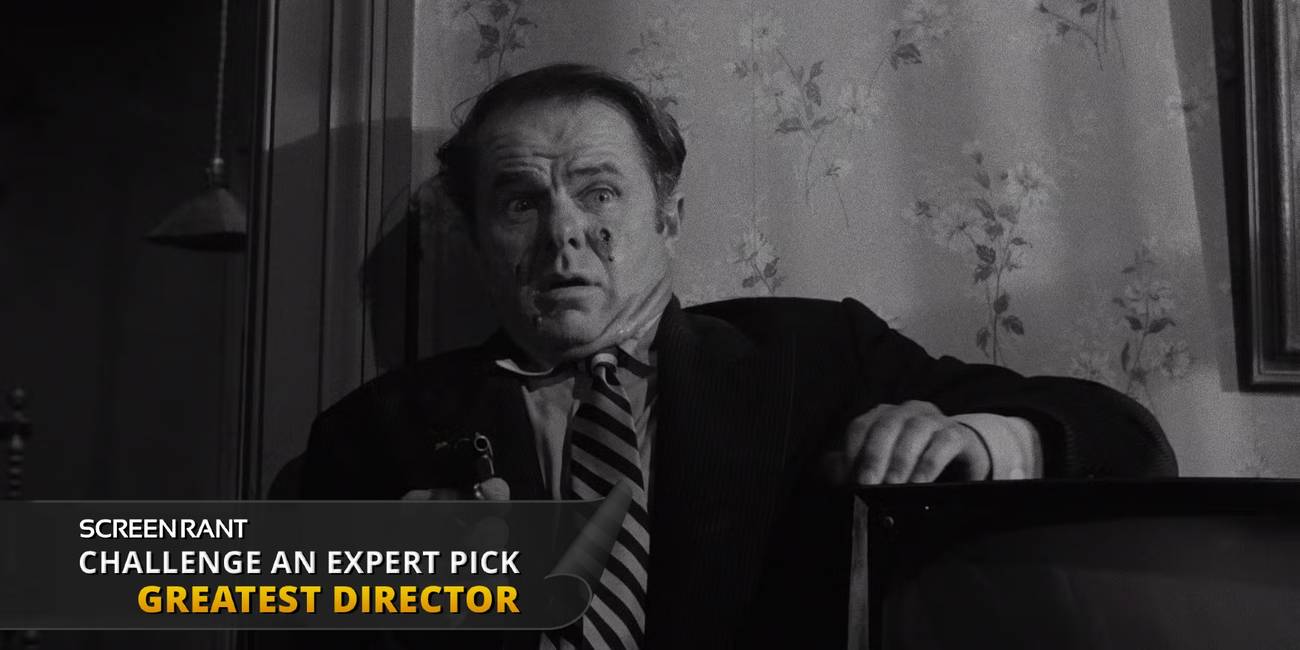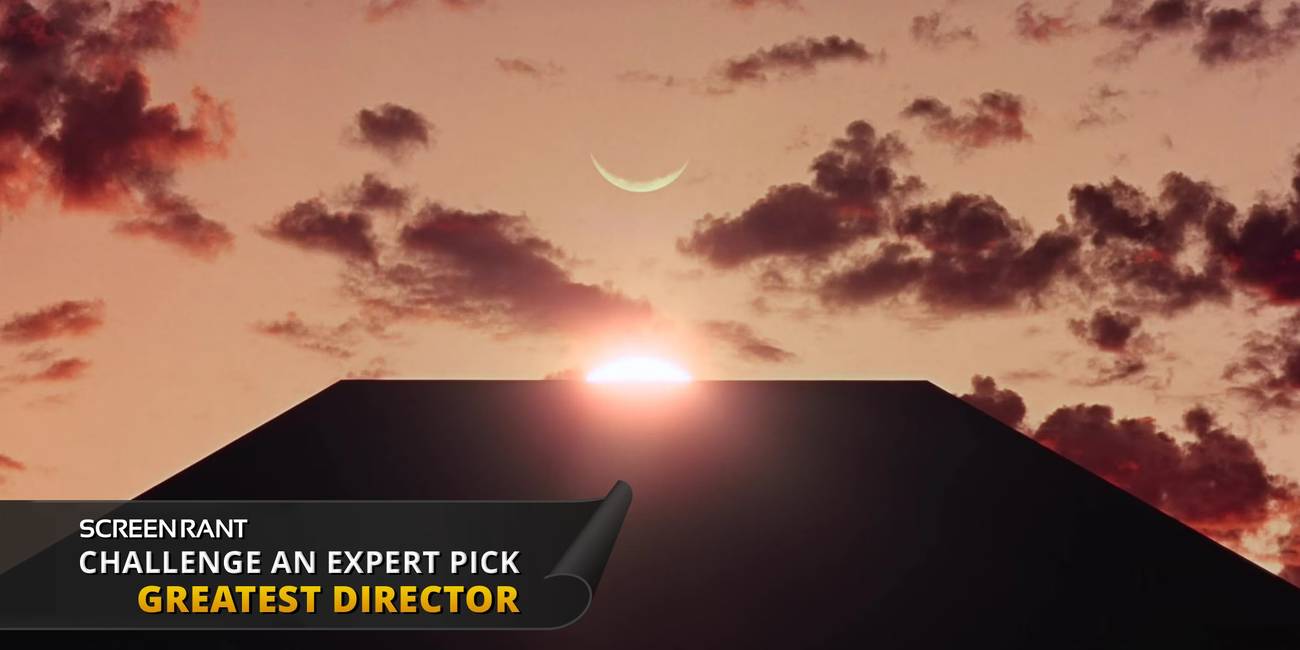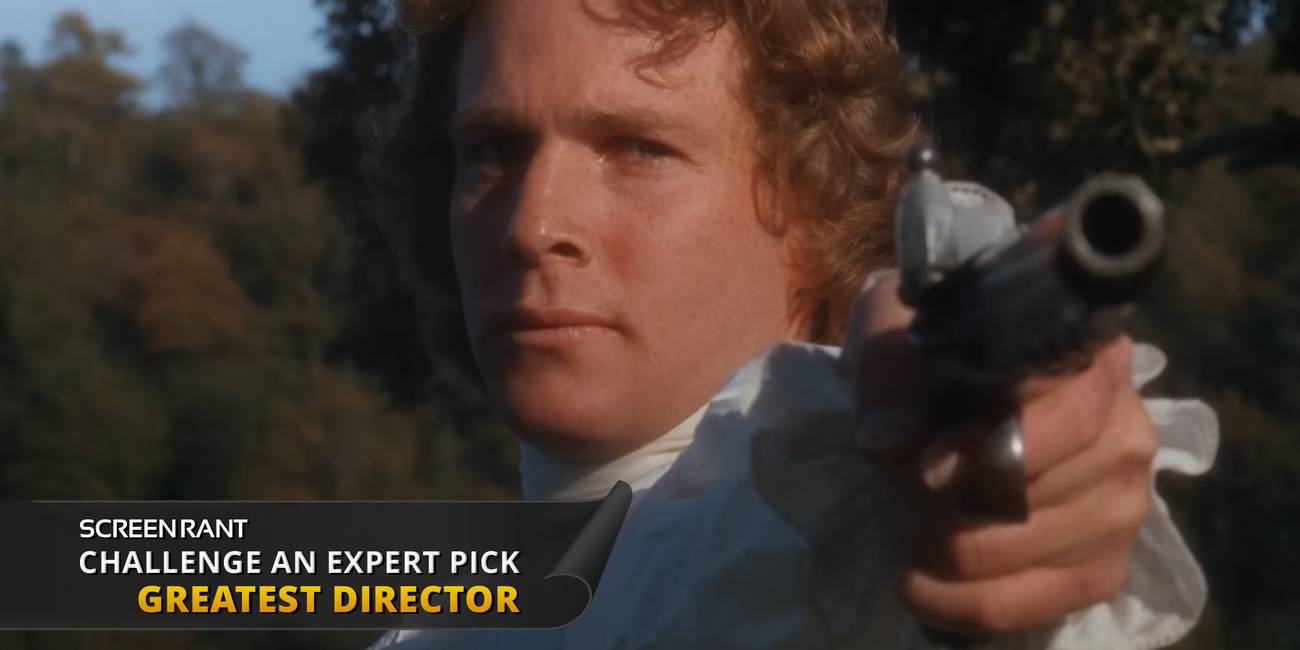Cinema has produced many great directors in its 130-year history, but I challenge you to find one greater than Stanley Kubrick. Take it to the comments below if you really think you can prove me wrong!
Film is a collaborative and unwieldy medium; if artistic self-expression is what you’re after, there are plenty of easier paths. But some filmmakers manage to find their voice in it nonetheless. To harness all those disparate parts and make them speak in unison is a great achievement, and anyone who manages to do this consistently across a career in movies deserves to be part of this conversation.
But if there can only be one, that one is Stanley Kubrick. Surprised? Probably not – let’s call that the first sign you already know I’m right.
Stanley Kubrick’s Filmography Goes Way Beyond His Reputation
I have a theory that any artist who is truly great (in both talent and stature) exists in two versions. One is the lasting impression they leave on the public consciousness, which is distilled and simplistic. We feel like we know them and their work even before we’ve explored it ourselves. But once we do take that dive, we find something richer, more varied, and more complex than we expected.
You’d be hard-pressed to find a director more influential on as many different strands of moviemaking.
For Kubrick, this is the image of the exacting genius who makes long, grand, rigidly controlled movies that can also be cold and humorless. The reputation of 2001: A Space Odyssey and the mythos around The Shining do the most heavy-lifting here, as does the enduring image of the Kubrick Stare. But his actual filmography is so much more than his reputation.
His early noir, The Killing, is a fun, propulsive B-movie that does everything it needs to in under 90 minutes. Dr. Strangelove is arguably the greatest-ever satirical comedy, but even without it, the ‘humorless’ characterization doesn’t hold water – there’s a wicked sense of humor running through all his films. That any one person could make both A Clockwork Orange and Barry Lyndon is a wonder, but Kubrick made them consecutively.
Every Genre Stanley Kubrick Touched Turned To Gold
In fact, that’s a point worth harping on. Kubrick’s run from Dr. Strangelove in 1964 to his final movie, Eyes Wide Shut, in 1999 is easily one of the greatest ever. But it’s also one of the most varied, as if he intentionally sought to do something completely different from his previous film.
Year
Movie Title
Genre
1964
Dr. Strangelove or: How I Learned to Stop Worrying and Love the Bomb
Satirical Comedy
1968
2001: A Space Odyssey
Sci-Fi Epic
1971
A Clockwork Orange
Dystopian Crime
1975
Barry Lyndon
Historical Drama
1980
The Shining
Horror
1987
Full Metal Jacket
War
1999
Eyes Wide Shut
Erotic Drama
As with any great filmmaker, how many masterpieces Kubrick left behind is up for debate, but for the majority of his movies, you can bet someone has made the argument. His films are often listed as among the greatest of their respective genres. You’d be hard-pressed to find a director more influential on as many different strands of moviemaking.
He achieved this in part by working to push cinema forward, technically as well as artistically. You might automatically think of 2001’s special effects, or of The Shining’s early adoption of the Steadicam (which has arguably never been used better), but don’t sleep on Barry Lyndon’s cinematography. Kubrick repurposed lenses built for NASA to shoot scenes lit entirely by candlelight. It is astonishingly beautiful.
Stanley Kubrick’s Films Challenge Viewers (& Other Directors) To Grow
Just as he was ahead of his contemporaries, Kubrick was also ahead of his audience. In the latter part of his career, his movies often followed the same life cycle of being hotly anticipated, met with a mixed reception, and then ultimately reappraised.
In retrospect, it’s clear he had a unique talent for challenging viewers’ expectations of him, and for encouraging us to broaden our horizons. His work still has that effect, all these years later.
I credit that to him being one of those rare filmmakers that seems cinematically fluent. Kubrick’s movies impart their feelings and ideas with remarkable ease, where many others have to strain to be understood. There are many directors, even great ones, whose films don’t feel quite this way to me. You get the feeling he could use moving images to say anything he wanted.
As anyone who’s seen Fear and Desire knows, however, he didn’t start fluent. Rather than a point against him, Kubrick not being a candidate for greatest-ever directorial debut is part of why I think he’s the GOAT. Despite his image, he didn’t arrive on the scene a fully-formed genius. He was a constant, insatiable learner of his craft, who never stopped searching for ways to innovate and improve.
Stanley Kubrick didn’t start out making his movies from the mountaintop; he climbed there. He’s the right choice for greatest director of all time not just because he deserves it, but because he challenges every director after him to climb higher – if they can.
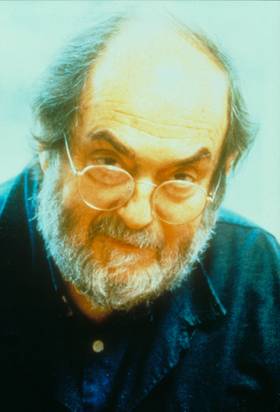
Birthdate
July 26, 1928
Birthplace
New York City, New York, USA
Professions
Film Director, Screenwriter, Producer, Cinematographer, Editor
Height
5 feet 7 inches

